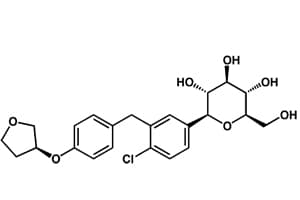 The US FDA has declined to approved Eli Lilly and Boehringer Ingelheim’s new diabetes drug empagliflozin until deficiencies at a plant making the drug are addressed.
The US FDA has declined to approved Eli Lilly and Boehringer Ingelheim’s new diabetes drug empagliflozin until deficiencies at a plant making the drug are addressed.
Lilly and Boehringer had been hoping to empagliflozin would join the ranks of the fast-growing sodium glucose co-transporter-2 (SGLT2) inhibitor treatment class, which is predicted to become a major force in type 2 diabetes treatment in the coming years.
Last year, Johnson & Johnson’s Invokana (canagliflozin) was the first SGLT2 inhibitor to reach the market in the US, followed by AstraZeneca’s Farxiga (dapagliflozin), which was approved by the FDA earlier this year having been first launched in the EU in 2012. Meanwhile, Astellas was first to market in Japan with its Suglat (ipragliflozin) drug.
The delay to empagliflozin is a blow to Lilly and Boehringer as it will allow their rivals to consolidate their market position in the US – and potentially also launch line extensions based on combinations with other oral diabetes drugs such as metformin – while the manufacturing deficiencies are resolved.
Lilly stressed that the FDA has not asked for any additional clinical trials of empagliflozin, so the length of the delay looks directly related to Boehringer’s ability to bring its facility at Ingelheim am Rhein up to code.
Last May, Boehringer was issued a warning letter by the FDA after an inspection of the active pharmaceutical ingredient (API) and finished dosage form plant uncovered a number of Good Manufacturing Practice (GMP) violations, including the presence of foreign particles in API batches. Operators at the unit also allowed product that had failed to meet specifications to be shipped.
Boehringer and Lilly said they were “committed to working with the FDA to make empagliflozin available to adults with type 2 diabetes and submitting a response to the complete response letter as soon as possible”.
For Lilly, the delay comes at a difficult time, with three big-selling drugs facing patent expiries in 2014 and a string of pipeline failures in the last couple of years leaving it with fewer growth products to meet its target of a return to revenue growth in 2015.
Its ambitions in diabetes took a knock earlier this year when Sanofi filed a lawsuit to block the launch of Lilly’s biosimilar version of its Lantus (insulin glargine) blockbuster, while last year it suffered late-stage setbacks with antidepressant edivoxetine, enzastaurin for lymphoma and tabalumab for rheumatoid arthritis.
Other than empagliflozin, Lilly is hoping for approval this year of its GLP-1 agonist dulaglutide for diabetes and cancer prospect ramucirumab.




